Opinion
Save, Preserve, and Conserve.
Published
3 years agoon
By
Naba Basar
One of the many things traveling teaches you is that “you are more capable than you ever thought”.
A decade ago, I was oblivious that traveling leaves a massive footprint on the environment and the destinations we visit. I took my first trip with my son in 2013, however, I did not truly understand why I was traveling. Things started to decipher when I decided to take a trip every year thereafter, with a purpose. My paradigm shifted as my trips increased and the more I explored the terms “sustainable” and “responsible” tourism. I now prefer to travel with a strong purpose. Vacations are essential and wonderful to look forward to for many reasons, but for some of us, traveling is how we connect with our fellow humans and the world around us. I became conscious about how we are capable of turning our trips into meaningful adventures – ethical, eco-friendly, and sustainable.
They say that traveling is the best way to learn things that truly matter, which is exactly what happened when I visited Hunza (Gilgit-Baltistan) in 2016. The week-long trip experience brought a substantial change in me – it was overwhelming and enriching. Admiring the stunning landscape, engaging with the local communities, and hearing their stories was a very humbling opportunity. I prefer to travel more slowly, observe more, create a better bond with the locals, and seize these experiences.
I revisit the same destinations across Gilgit-Baltistan, predominantly because of the inhabitants – their simplicity, hospitality, and respect towards tourists, especially female tourists. The reason why I keep going back every year, the reason I spend months away from home fearlessly, the reason I recommend tourists from around the world, and the reason I choose to write about this region extensively. I’ve traveled across Pakistan; Sindh, Punjab, all Districts of GB, Chitral, and Kashmir and it is truly the interaction with locals that makes your trip memorable. To this day, I feel incredibly at ease if I’m staying at an accommodation owned and run by locals.
Remember, “A place is only as good as the people in it.”
Unfortunately, in recent years, the tourism industry has expanded and evolved rapidly. Investors and entrepreneurs from metropolitan cities have seen huge potential in these mountains and seem to take advantage of the gullibility of local communities and their financial struggles. The surge in tourism has brought a drastic “inconsiderate” change in the region, which needs prompt action – now!
Although some may argue that it does generate economic benefits for local communities and provides jobs for those in the industry, leasing or selling property, land, and territory to the urbanites will soon turn Gilgit-Baltistan into the next Galiyat region.
There is no denying that it has imperative negative consequences, including the over-use of resources, displacement of wildlife, and damage to history, heritage, and local culture. Uncontrolled conventional tourism triggers potential threats to nature around the globe.
In recent years, expanded tourism in many regions across Pakistan has already contributed to land and water pollution and scarcity, ill-planned urbanization, traffic congestion, and loss of cultural values — all of which have contributed largely to the natural disasters we’ve experienced. Mass tourism, with little or no focus on sustainability, is often more exploitative and can inadvertently harm local culture and indigenous people.
Tourism can cause the same forms of pollution as any other industry: air emissions, noise, frivolous use of blazing lights at restaurants and hotels that hinder stargazing, solid waste and littering, releases of sewage, oil, and chemicals, and even architectural and visual pollution. A lack of land-use planning and building regulations in many destinations has facilitated sprawling developments along coastlines, valleys, and scenic routes.
The sprawl includes tourism facilities and supporting infrastructure such as roads, employee housing, parking, service areas, and waste disposal.
Every year my interaction with local communities increased – staying with them, in their homes, eating with them, and discussing issues. As they voiced their concerns, it occurred to me that even a slight increase in tourism activity can cause harm to the natural resources and cultural setting – completely ignoring the heritage, the aesthetics, and the well-being of the residents. From carbon emissions to pressure on resources to everything being commercialized including values; tourism can have a series of negative effects. Parts of Pakistan that were once hard to reach are now easily accessible and add to this, the rise in popularity of social media channels inspires and encourages people to explore more than ever. Regrettably, all they can do is silently protest against illegal land-grabbing and depriving them of their ancestral properties. The state must respect, facilitate and protect this right.
From a frequent traveler’s perspective, I have observed a massive transformation of my favorite destinations in the last 6 years. There have been excessive constructions and increased recreational facilities which have had a detrimental effect on scenic landscapes. Sadly, in Pakistan, no one cares about aesthetics and therefore, we have failed to integrate structures with the natural features and indigenous architecture of the destination. Large, dominating resorts of contrasting structural design can look out of place in any natural environment; concurrently involving sand mining, soil and dune erosion, and deforestation caused by fuel wood consumption and land clearing. The extensive paving has led to land degradation and loss of wildlife habitats and deterioration of scenery.
Eco-tourism vs. Sustainable tourism vs. Ethical and Responsible tourism vs. Reformative tourism – is there a difference?
Recently, the terms Eco-tourism, Sustainable tourism, Ethical tourism, and Responsible tourism are quite a bit of a discussion amongst the masses, particularly more on social media, and as much as it may seem, they don’t all mean the same thing.
Eco-tourism The widely accepted definition of eco-tourism is “responsible travel to natural areas that conserves the environment and improves the well-being of local people.”
Sustainable tourism is about minimizing the negative impacts of tourism and conserving resources or using them wisely to maintain their long-term viability. Also, it generates economic benefits for the locals through tourism. The economic benefit of tourism is massive and many countries rely hugely on tourists to keep their economies running smoothly.
Ethical and Responsible tourism embraces local communities and generates greater economic benefits for local people and enhances the well-being of host communities. It involves local people in decisions that affect their lives. Tourism offers more enjoyable experiences through deep, meaningful connections with the inhabitants, and a greater understanding of cultural diversity, heritage, and environmental concerns. It is essential to develop empathy and encourage mutual respect between tourists and hosts.
Reformative tourism takes the travel industry to another level where the emphasis is on development and expansion without obliterating the ecological structure. Involving the local people in the decision-making process of new tourism ventures is significantly important, as in the coming years as the basic infrastructures of many destinations have been affected by mass tourism in recent times.
Let us all make a conscious effort and try and reduce our environmental impact while traveling.
- Begin by choosing to support local businesses to add value to sustainability. Prearrange trips with local tour operators, and choose to stay and dine in at places run by the local communities. The people who own the place will ensure that their business operations will not harm nature.
- I prefer to stay at a homestay where you can get an authentic local experience with the best facilities, while your money stays in the community.
- Minimize plastic and waste production. Carry and use reusable or biodegradable items. Avoid littering and help contribute towards conservation.
- If you are traveling with children, you can engage them in community service activities; helping in the fields, tutoring kids, collecting and removing the garbage, learning or sharing skills, etc.
- Protect and respect nature and the environment. Follow rules, norms, and local guidelines.
It all begins with a choice – So, try and be better; act better; and become more. That choice conclusively lies with you.
About Author
Naba Basar
The writer is a teacher by profession and a freelance writer, photographer, and backpacker by passion. Born and raised in Karachi, Naba overcame the challenges of being a single parent and ventured out to explore Pakistan as a solo traveler. Starting with small group travels, Naba eventually backpacked across Pakistan solo and in small groups, choosing to travel by public transport, living in local homes, and enjoying the simple food the mountains offer.
Naba is the author of two travelogues, “Gateway to Serenity: The Karakoram Highway” and “Walk to Remember: The Karakoram Highway”. Both books are based on Naba’s personal journey across Gilgit-Baltistan, Pakistan, where she shares the culture, cuisine, lives, stories, landscape, hospitality, and simplicity of the people with the rest of the world. Naba’s passion for nature and adventure began in 2013 and has inspired her to explore the unprecedented mountain ranges since then. She has researched intricate details about every place and included them for the reader’s benefit, while keeping her writing real and authentic without sugar-coating anything.
Naba’s ultimate dream is to settle in the mountains forever and establish a learning center for little children, and share stories of mountain people. If you’re looking for a light read that will inspire you to explore off-the-beaten-track destinations, Naba’s books are perfect for you.
You may like
-


Rumi, the Moral Psychologist
-


Poor Winter Maintenance of KKH Risks CPEC All-Weather Trade
-
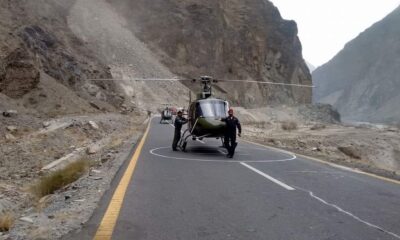

Pakistan Army Launches Rescue Operation, Missing Passengers in Deosai Found Safe
-


PM Shehbaz Sharif Visits Gilgit-Baltistan, Honors Martyrs, and Launches Development Projects
-
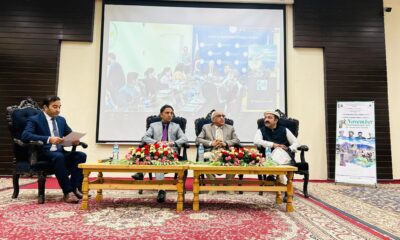

CISS-KIU Seminar: A Tribute to Gilgit-Baltistan’s Freedom Fighters of 1947
-


Gilgit-Baltistan Marks 77th Liberation Day from Dogra Rule
Arts, Culture & Heritage
Rumi, the Moral Psychologist
Published
1 year agoon
January 14, 2025By
Zameer Abbas
Maulana Jalal-ud-Din Mohammad (1207-1273), popularly known as Rumi, was a Muslim theologian-turned-poet. His poetry, published in two genres of masnavi and ghazal is mainly focused on the idea of love and its relation to the intimacy with God. However, the thoughts of Rumi, expressed through thousands of verses and ghazals, go beyond love and touch upon various aspects of human life and the universe. Even a cursory reading of Rumi’s poetry reveals his wide-ranging and thoughtful expressions on nature, universe, world, anger, lust, justice, purity, etc. According to Ahmed Javed, a contemporary literary critic, Rumi is the best author of human experience in the world. In other words, Rumi best describes the meaning of being a human on planet earth. Alan Williams, professor of Iraninan studies and translator of the works of Rumi, has identified the voice of moral reflection or homily as one of the seven voices while defining the narrative structure of Masnavi, a long poem by Rumi published in 06 volumes. Similar vein of advice and observations on moral psychology can be found in over 3,000 ghazals of Divan or Divan-e- Shams, the collection of ghazals by Rumi. Brittanica, an online encyclopedia, defines moral psychology as “the empirical and conceptual study of moral judgement, motivation and development”. This article details the verses of Rumi, from both Masnavi and Divan, which convey the deep observations of the poet regarding moral psychology. The verses are easily discernible for enduring reliability.
Like other poets, Rumi deploys the tropes of allegory, metaphor, simile, folklore, historical events, personalities, Quranic verses, Hadith etc to make his point. I will present a selection of verses from Rumi’s Masnavi and Divan highlighting the moral psychology therein.
این جہان کوہ است و فعل ما ندا
سوئ ما آید نداہا راصدا
(M I:215)
This world is the mountain, and our action the shout: the echo of the shouts comes (back) to us.
Rumi has explained the recompense for deeds and misdeeds by comparing the whole world to a mountain. Just like the mountain returns the schists by echoing it, the good and bad deeds are accordingly rewarded in this world.
Rumi’s places a lot of emphasis on the importance of thoughts in the life of a human being. He considers that a human being is nothing but a thought itself.
ای برادر تو همان اندیشه ای
ما بقی خود استخوان و ریشه ای
گر گُل است اندیشه ای تو گُلشنی
ور بوُد خاری تو هیمه گُلخنی
Brother! Your worth is in your thoughts alone; you are blood and flesh apart from that
You are rose, if all your thoughts are selfless
If bitter, you are a thorn that is judged worthless
Brother, your worth is in your thoughts alone
M II, 277-278
The formidable effect of a person’s thoughts are highlighted in the above verses. The precursor of every action is a thought. In a sense Rumi is ahead of René Descartes (1596–1650), French philosopher, by three hundred years who affirmed cogito ergo sum ( think therefore I am!). In other words, the ability to think and perceive constituted the most important element of human existence. At many places in both Masnavi and Divan Rumi elucidates how negative thoughts disempower and depress a human being and how he can rise above those thought processes. In the opening verse of Ghazal 2500 of Divan, Rumi diagnosed that the doom and gloom is always characterised by mean thoughts of a man:
چه افسردی در آن گوشه چرا تو هم نمیگردی
مگر تو فکر منحوسی که جز بر غم نمیگرد
Why are you depressed and cornered instead of moving ahead?
But then you are an epitome of mean thought and you are obsessed over grief
In numerous verses, Rumi emphasises the layered and unfathomable inner world of a human being, making it all the more important to avoid judging someone through appearances alone. An example:
َمرد را صد سال عم و خال او
یک سر ُمویی نہ ِبیند حال اُو
A man’s paternal and maternal uncles (may see him) for a hundred years, and of his (inward) state not see (so much as) the tip of a hair (M:3, 4249)
Rumi underlines the complexity of human psyche in that it is characterised by an inner world which is rarely apparent. In other words, he implies that our judgements based on the outward appearances or behaviour of a person may well be wrong considering that appearances never represent the human being on the whole.
Regarding worldly gains and glory, Rumi maintains that on the one hand they uplift and increase a person’s standing among the people but conversely they become the reason of the downfall too as succinctly expressed in the verse below:
دشمنِ طاؤس آمد پر اُو
ای بسی شہ را بکشتہ فر اُو
The peacock’s plumage is its enemy: O many the king who hath been slain by his magnificence!
(M1:208)
Rumi is of the view that by reciprocating a bad deed, one becomes equal to the perpetrator of the act. He, therefore, exhorts restraint or better still good behaviour in response to treatment.
گر فراق بندہ از بد بندھگی است
چون تو با بد بندگی پس فرق چیستHave I deserved my fate for some offence; If you hurt sinners what’s the difference?(M:1,1564)
It can be discerned from the above selection that besides numerous themes in his collection of verses (in Masnavi and Divan) Rumi conveys a message of morality in unmatched eloquence and clarity. Perhaps it is beauty and depth and a sense of wonder in these verses that remain relevant to date and keeps guiding anyone who immerses in the ocean of his wisdom.
About Author
Zameer Abbas
The author is an alumnus of the Institute of Development Studies, UK. He is currently associated with the government of Gilgit-Baltistan and tweets at @zameer_abbas21.
CPEC
Poor Winter Maintenance of KKH Risks CPEC All-Weather Trade
Published
1 year agoon
November 20, 2024By
Imran Ali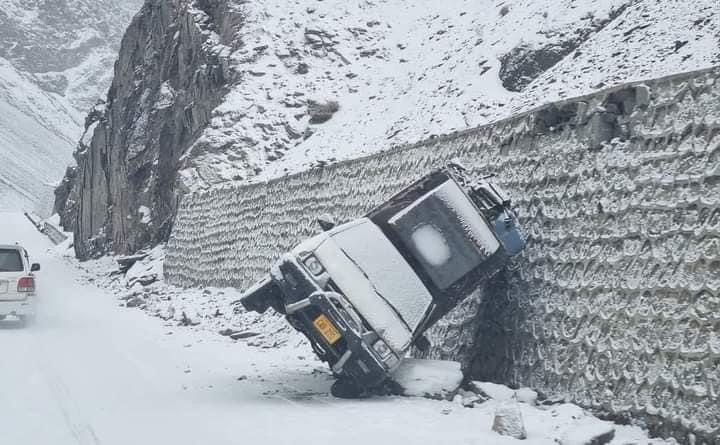
The Karakoram Highway (KKH), a vital lifeline for trade between Pakistan and China under the China-Pakistan Economic Corridor (CPEC), faces critical challenges each winter due to negligent maintenance. Connecting the two nations through the Khunjerab Pass—at over 4,693 meters (15,397 feet) above sea level—this strategic route is central to trade and regional economic integration. The pass connects Gilgit-Baltistan with China’s Xinjiang region and was reopened after closing for almost three years in April 2023. The land border was closed in 2020 after the outbreak of COVID-19. However, when heavy snowfalls hit, KKH becomes treacherous, risking the disruption of trade and the economic ties vital to both countries.
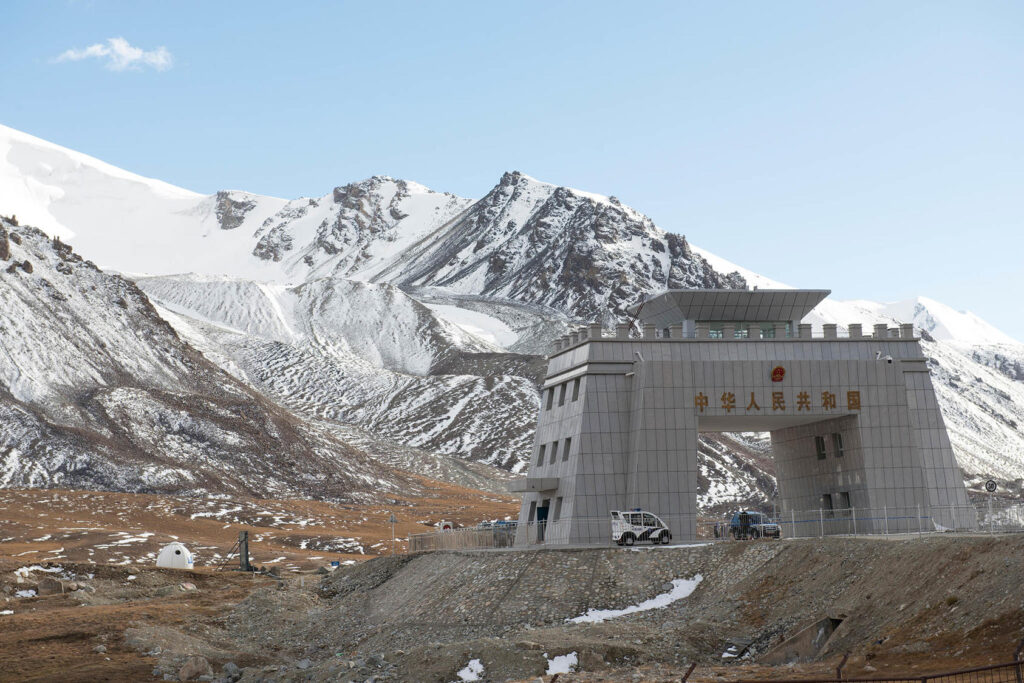
The KKH, a pivotal component of CPEC, facilitates the movement of goods and strengthens economic ties between Pakistan and China. Its year-round functionality is crucial for trade. Yet, the lack of timely snow clearance and road maintenance is disrupting the route, undermining the goals of CPEC.
Despite past agreements aimed at transforming the KKH into an all-weather route, meaningful execution has been lacking. This year, authorities have announced plans to finally implement measures to ensure year-round connectivity. However, the existing state of road maintenance raises doubts about their effectiveness and commitment.
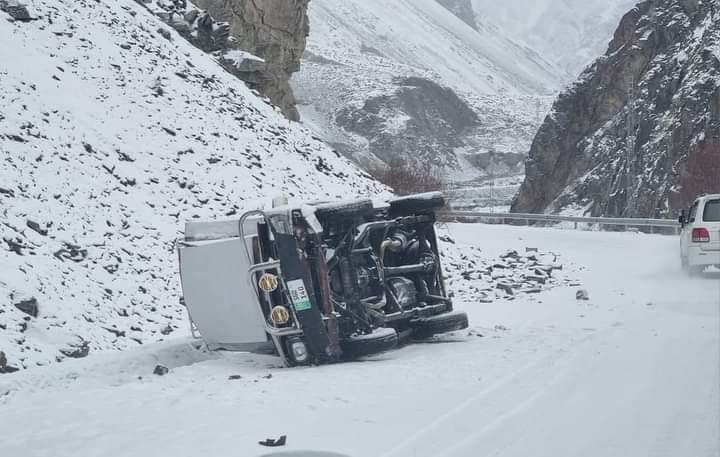
For Aman Ullah, a resident and trader from Gojal, Hunza, the snowbound Karakoram Highway is more than just an inconvenience—it’s a daily struggle that threatens his livelihood. “We are often left stranded for days, with no way to continue our trade,” he shared with The Karakoram.
Aman explained, “A few years ago, the Chinese government donated four state-of-the-art snow-clearing machines to the FWO for winter maintenance of the Khunjerab Border and nearby sections of the KKH. These advanced machines, equipped with computerized systems, were intended to ensure safe travel and uninterrupted trade. However, only one of these machines remains operational today, and even that is reportedly in poor condition. Instead of effectively clearing the snow, it often leaves the road even worse, making travel difficult. The fate of the other three machines remains unknown, raising serious concerns about mismanagement and a lack of accountability.”
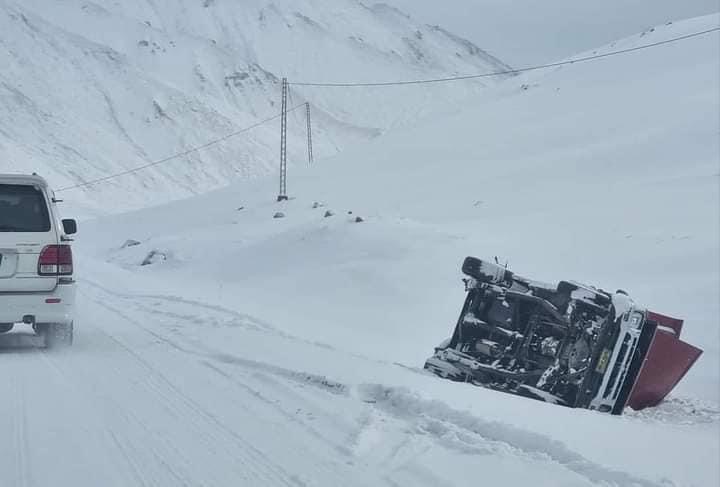
The poor state of snow clearing operations has caused a worrying rise in road accidents, Tufail Ahmed, the owner of a transport company whose vehicles frequently travel to China via the KKH, shared his frustrations. Stranded vehicles have become a common sight, with travelers risking their lives in freezing temperatures,” he said.
Abdur Rehman, an import-export trader from Gilgit-Baltistan, highlighted the contrast between the two sides, adding, “In stark contrast, the Chinese side of the Khunjerab Pass ensures the road remains well-maintained and operational during winter. Advanced machinery and a proactive approach demonstrate their commitment to maintaining seamless connectivity. This disparity reflects poorly on Pakistan’s preparedness and raises questions about the efficiency of NHA and FWO.”
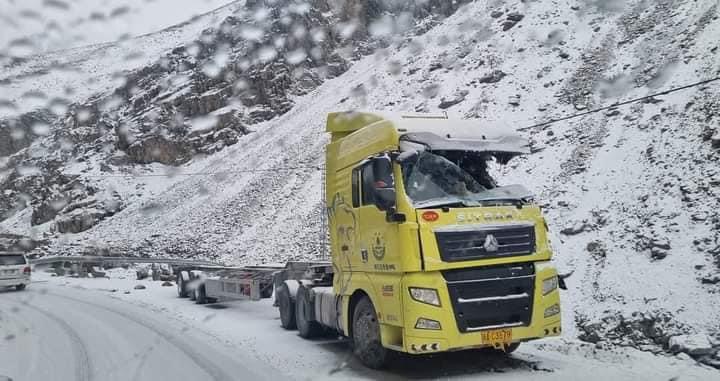
Dr. Faqeer Muhammad, Director of the China Study Centre in Gilgit-Baltistan, emphasized the broader implications, stating, “The KKH is more than just a road—it’s a vital trade corridor that plays a key role in China’s Belt and Road Initiative (BRI); it is a symbol of connectivity, trade, and opportunity. Neglecting its maintenance during winter risks undermining Pakistan’s economic and strategic interests, calling for immediate attention from the authorities.” Its maintenance is critical not just for trade but for the broader economic and strategic objectives of CPEC.

This neglect not only puts lives in danger but also hampers trade activities, creating significant bottlenecks for transportation linked to CPEC.
Residents and stakeholders are demanding urgent action to address these issues. Effective utilization of resources, transparent accountability for the missing machinery, and better coordination between authorities are imperative. Maintaining the KKH as a safe and reliable trade route is not just a regional necessity; it is a cornerstone of CPEC and a matter of national importance.
About Author
Imran Ali
The writer is the Founder & CEO of The Karakoram Magazine. Additionally, he is a nuclear scholar fellow at the Centre for Security Strategy and Policy Research (CSSPR) and can be reached at aleee.imran@gmail.com.
Opinion
Gilgit-Baltistan Marks 77th Liberation Day from Dogra Rule
Published
1 year agoon
November 1, 2024By
Imran Ali
Gilgit-Baltistan enthusiastically celebrated its 77th Liberation Day on November 1st, 2024. A public holiday was declared in all ten districts, and various events were organized to commemorate the occasion.

The main event was held at Yadgar Shuhada Chinar Bagh, where Governor Syed Mehdi Shah, Chief Minister Haji Gulbar Khan, and Commander FCNA Major General Syed Imtiaz Hussain Gilani unfurled the national flag. Provincial ministers, the Chief Secretary, the IG Police, and other senior officials also attended the ceremony. Floral tributes were paid to the martyrs, and the armed forces of the GB Police presented a salute.
Governor Syed Mehdi Shah emphasized the sacrifices made by the Gilgit-Baltistan Scouts, the region’s forefathers to liberate it from Dogra rule. He also acknowledged the sacrifices of the martyrs and reaffirmed the commitment to national security.
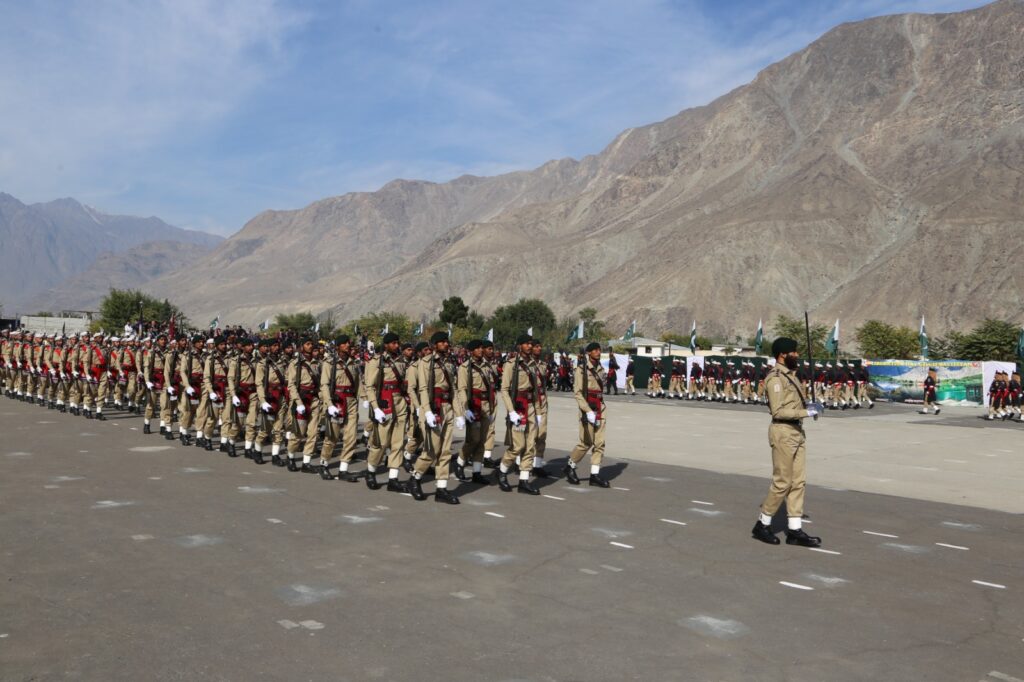
A special Independence Day ceremony was organized at the Army Helipad, where high-ranking civil and military officials participated. For the first time in Gilgit-Baltistan’s history, the 77th Independence Day Parade was telecast live on national channels, including Gilgit-Baltistan PTV. Many people viewed the parade live at Wahab Shaheed Ground and Lalak Jan Shaheed Ground.
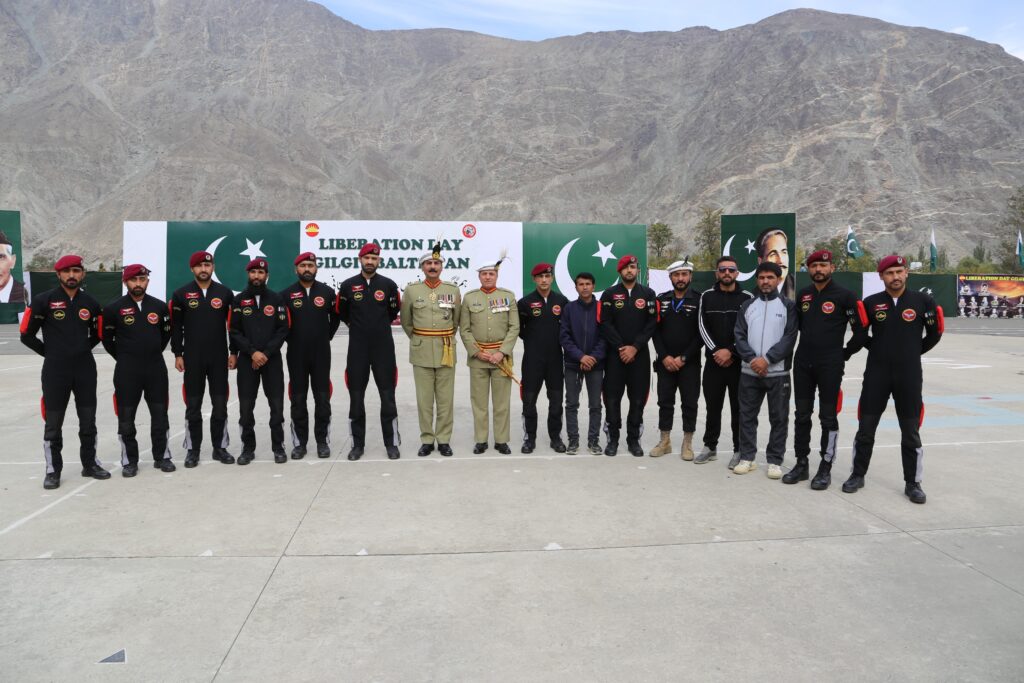
Commander 10 Corps Lieutenant General Shahid Imtiaz highlighted the significance of Gilgit-Baltistan’s freedom, achieved through the courage and sacrifice of its people. He emphasized the region’s enduring loyalty to Pakistan.

Chief Minister Haji Gulbar Khan paid tribute to the region’s martyrs and expressed pride in the people of Gilgit-Baltistan. He also acknowledged the pivotal role played by the Gilgit-Baltistan Scouts, a force with a rich history dating back to the British Raj. Their courage and sacrifice were instrumental in securing the region’s freedom from Dogra rule. Alongside the local populace, the Scouts fought valiantly against the Dogra forces and ultimately achieved victory.

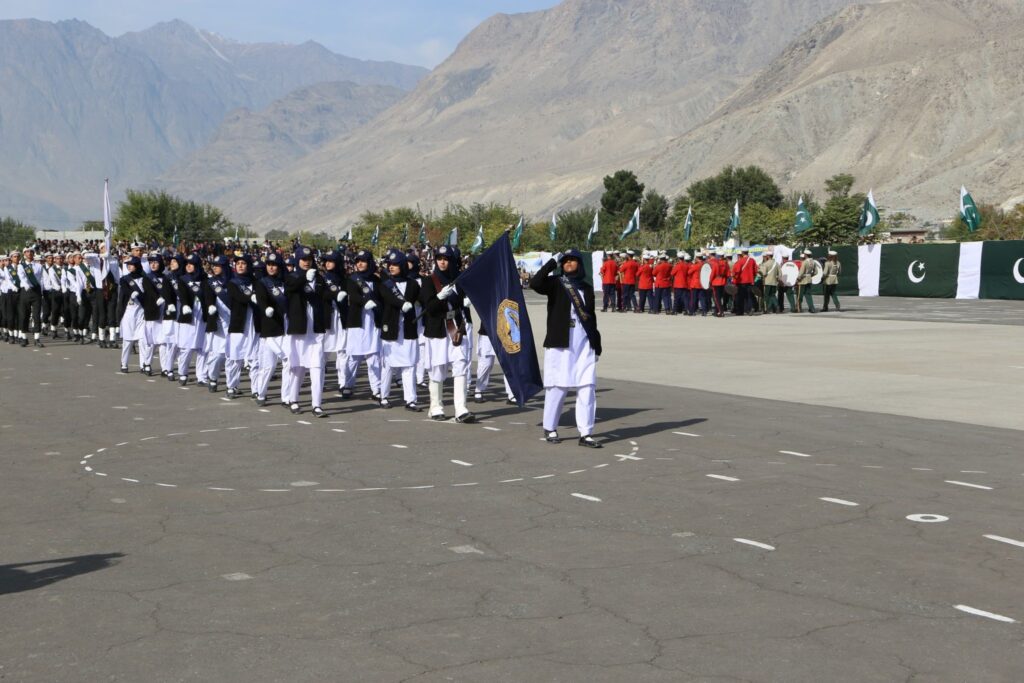
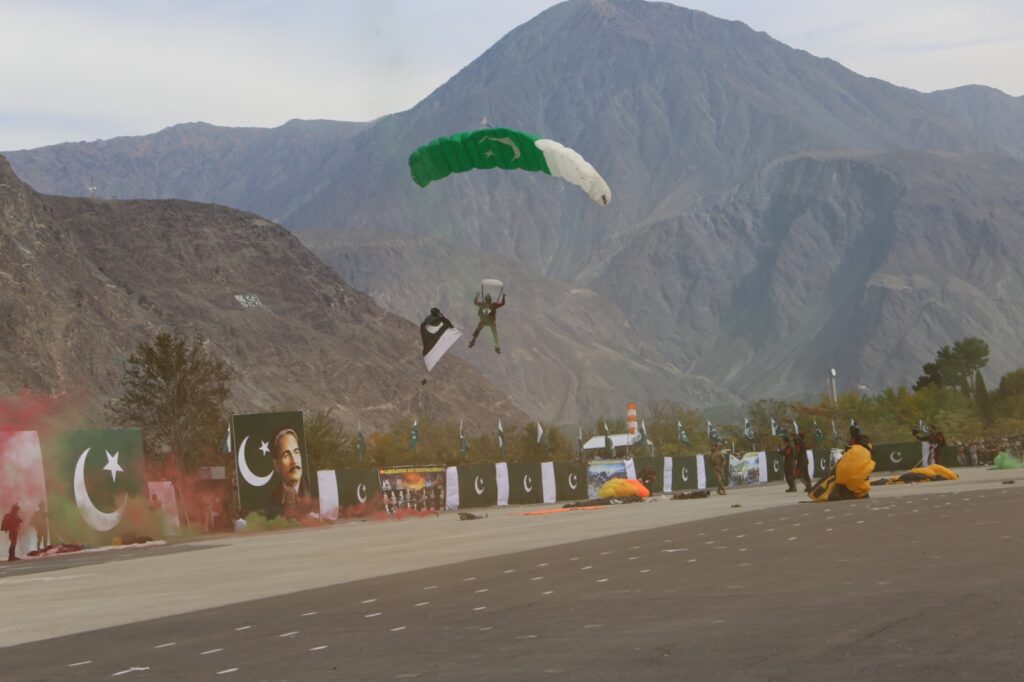
The Independence Day Parade featured troops from the NLI Center, GB Scouts, Women Police, GB Police, Punjab Rangers, Cadet College Skardu, and Cadet College Chilas. The celebrations also included paragliding performances and cultural programs, featuring national and regional patriotic songs as well as local dances.

Similar celebrations were held in all districts of Gilgit-Baltistan, with cultural programs, flag hoisting ceremonies, and tributes to martyrs. The Pakistan Army played a significant role in organizing these events and broadcasting special programs.

As Gilgit-Baltistan commemorates its 77th Liberation Day, it reaffirms its commitment to national unity and prosperity. The region’s rich history, diverse culture, and stunning natural beauty continue to attract visitors from around the world. With its strategic location and abundant resources, Gilgit-Baltistan is poised to play a vital role in Pakistan’s development and progress.
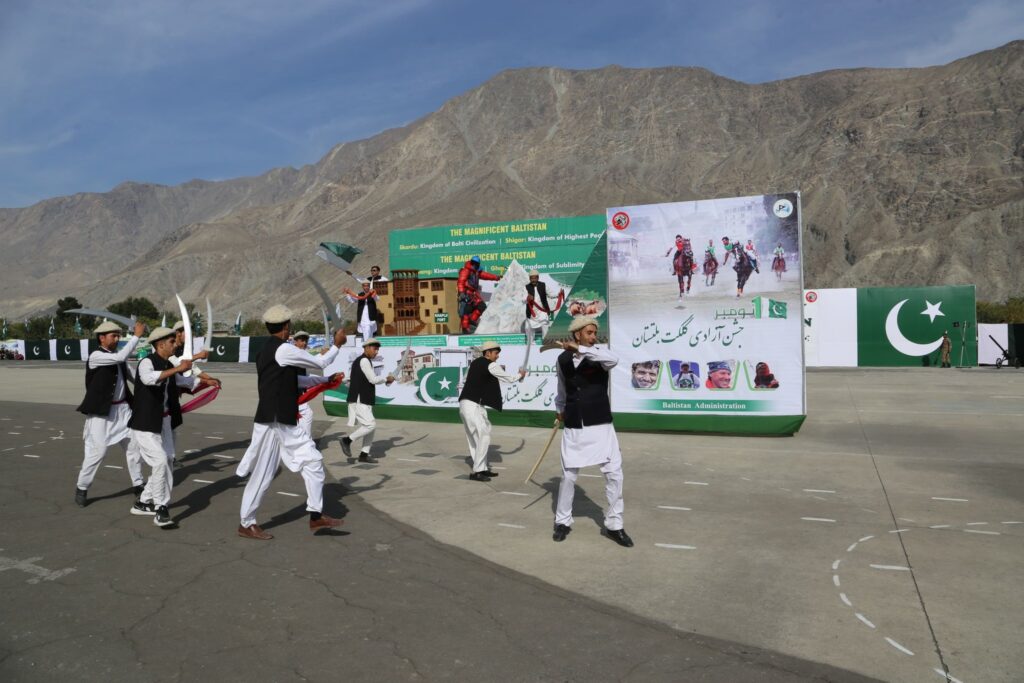
About Author
Imran Ali
The writer is the Founder & CEO of The Karakoram Magazine. Additionally, he is a nuclear scholar fellow at the Centre for Security Strategy and Policy Research (CSSPR) and can be reached at aleee.imran@gmail.com.

Muhammad Azeem Khan: Pakistan’s Number One Amateur Featherweight MMA Fighter

A Drop for a Click: The Silent Cost of Our Digital Thirst

10 Places to Visit in Hunza – Stunning Natural Wonders You Can’t Miss
Latest
-

 Arts, Culture & Heritage2 years ago
Arts, Culture & Heritage2 years agoTraditional women’s dresses of Gilgit-Baltistan
-

 KIU Corner2 years ago
KIU Corner2 years agoA Guide to LMS KIU Student Login – KIU
-
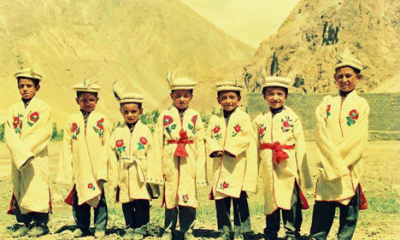
 Arts, Culture & Heritage2 years ago
Arts, Culture & Heritage2 years agoShuqa Simple but amazing winter clothing of Gilgit-Baltistan
-

 KIU Corner2 years ago
KIU Corner2 years agoEmbracing Challenges: Gul Rukhsar’s Remarkable Journey
-
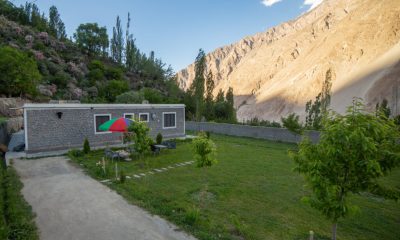
 Arts, Culture & Heritage2 years ago
Arts, Culture & Heritage2 years agoTraditional houses Gilgit-Baltistan
-
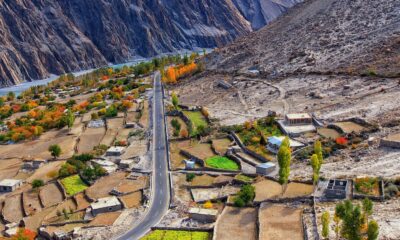
 Tourism2 years ago
Tourism2 years agoDiscover the Unparalleled Beauty and Culture of Gilgit-Baltistan
-

 Opinion3 years ago
Opinion3 years agoExploring the Enchanting Astore Valley: A Paradise in the Himalayas.
-

 Current Affairs2 years ago
Current Affairs2 years agoGilgit-Baltistan and the Geopolitics of the Third Pole




